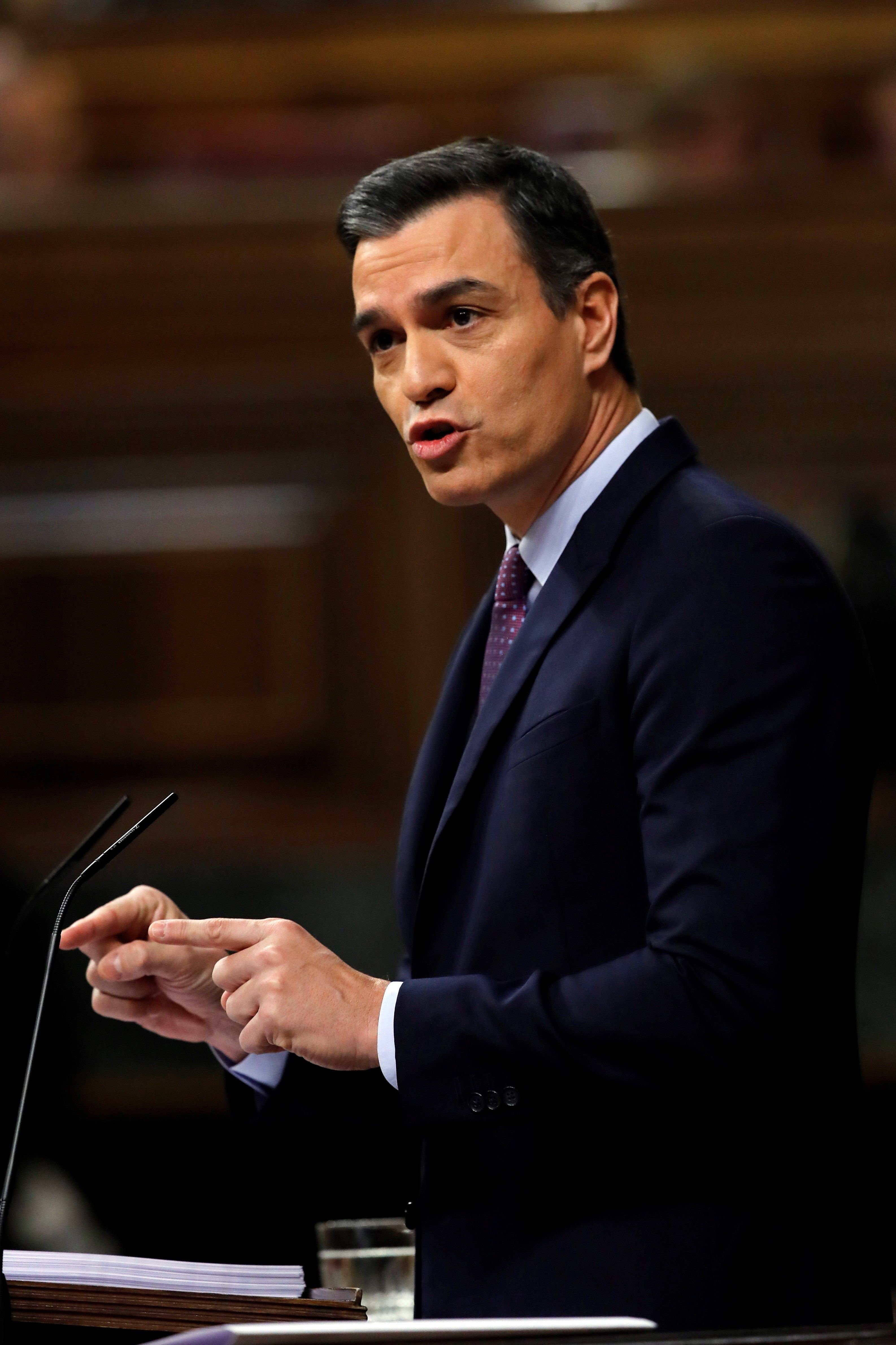The context for Pedro Sánchez's two-hour-long speech during today's debate on his reinvestiture as prime minister of Spain was anything but easy. Indeed, just in the last few hours it had grown more complicated still, after the Central Electoral Commission's decisions regarding Quim Torra and Oriol Junqueras. With this in mind, Sánchez knew he had to ensure pro-independence party ERC would maintain its abstention for the arithmetic to work for his candidacy.
He promised the independence movement, firstly, "to return the political conflict to politics" and, secondly, "to leave behind the legal drift which has caused so much pain and fracture to a large portion of the Catalan and Spanish citizenry". It's time to "restart". Although he did want to make it clear that "neither Spain nor the Constitution will be broken".
A selection of Sánchez's references to Catalonia
- "Nobody will break up Spain and nobody will break the Constitution. Here what will be broken is the blocking of the progressive government."
- "This is an inherited crisis, which PSOE warned of whilst in opposition. And which we take on with all constitutional loyalty and all institutional responsibility, to return a political conflict to politics."
- "It's necessary to take up again the only possible path: politics. That of dialogue, negotiations and pacts. Protected by our Constitution."
- "Taking back up the path of politics, leaving behind the judicialisation of the conflict."
- "We have the responsibility, all of the parties present in the chamber, of putting our backs into reconstructing the damaged cohesion."
The candidate avoided referring directly to the Electoral Commission's rulings, but did say "too much time" has been spent on "lawsuits, many of them sterile, which take time away from matters which could offer us more prosperity and progress." He also admitted there are "undeniable feelings", like the "grievance" of an "important sector" of Catalan society over Spain's actions, as well as those who don't feel like they are represented by the institutions of Catalonia. He attributed this to the "abandoning of the political path to resolve a problem which is political in nature".
He promised to "correct the erosion of the system of autonomous communities": "It's our duty and obligation". To do so, he argued that "dialogue is the path", and that that "dialogue has to start from the recognition of the other".
Gestures towards Podemos
As well as the Catalan independence movement, Sánchez also had gestures designed to appeal to his prospective coalition partners in Podemos. Some of these were rhetorical, like taking on Podemos's concept of the defence of public services being patriotic. Others pointed to more concrete measures, like committing to repealing PP's labour reforms, legalising euthanasia and ending the so-called "gag law" (ley mordaza). He also promised Spain's "first trans law" to protect the community's rights.
Sánchez defended the feminist movement, saying it is an "irreversible and unstoppable political and social movement". He promised to reform the penal code "so that only 'yes' is yes" when it comes to consent.
The Franco legacy
The candidate for prime minister also had proposals to tackle the long shadow the dictator Franco still casts over Spanish politics. He announced he will make 31st October a day of remembrance for the victims of the Franco regime and 8th May a day of recognition for the victims of exile. He also committed to exhuming the remains of victims still lying in mass graves, removing Francoist symbols that remain in public spaces and revoking awards for repressive actions during the dictatorship. Finally, he promised an audit of the "assets plundered" by the general.

